IRCC Request Letters in Canadian Immigration
A&M Canadian Immigration Law Corporation
IRCC Request Letters in Canadian Immigration
When you submit an immigration application to Immigration, Refugees and Citizenship Canada (IRCC), you might receive what is commonly called a Request Letter during the processing of your case. These letters are not a refusal or approval, they are formal notices asking you to provide more information, documents, or clarifications before a decision can be made.
Understanding what IRCC request letters mean, why they are issued, and how to respond is critical to avoid delays or negative outcomes in your application.
What is an IRCC Request Letter?
An IRCC Request Letter is official communication from IRCC asking an applicant to submit additional documents or information within a specific deadline. These letters are a routine part of many immigration applications and should not be seen as negative on their own.
Some common examples of IRCC request letters include:
- Requests for updated police clearance certificates.
- Requests for medical examinations or medical re-assessments.
- Requests for proof of funds or updated bank statements.
- Requests for employment verification letters.
- Requests for missing forms, signatures, or documents.
- Requests for additional identity or travel history documents.
Why Does IRCC Issue Request Letters?
IRCC may issue a request letters for several reasons:
- Incomplete Application – Some documents were missing when you first applied.
- Document Expiry – Items such as medicals or police certificates have expired during processing.
- Verification – IRCC wants to confirm details, such as work history, financial ability, or family relationships.
- Updated Information – Since immigration applications can take months or years, IRCC may request updated records to ensure your situation
has not changed. - Clarification – If something in your file is unclear, IRCC may ask for further explanation or proof.
What Are the Possible Solutions?
If you receive a request letter, it is important to respond completely and within the given deadline (often 30 days). Possible steps include:
- Gathering the Documents Quickly – Submit everything requested, in the proper format, before the deadline.
- Providing Explanations – If you cannot obtain a document (for example, a police certificate from a country in conflict), provide a detailed
letter of explanation and proof of efforts made. - Submitting Updated Versions – If IRCC asks for updated financial or employment documents, ensure they are recent and properly stamped or
verified. - Seeking Legal Assistance – If the request is complex or unclear, an immigration lawyer can help you prepare a professional response.
Failure to respond properly or on time may result in delays, refusal, or even a finding of misrepresentation if IRCC feels you withheld information.
How to Avoid Receiving Request Letters
While some requests are unavoidable, many can be prevented by ensuring your application is complete and accurate from the start. Here’s how:
- Double-check all document checklists before submission.
- Provide properly translated and certified documents.
- Make sure all forms are complete, signed, and up to date.
- Submit recent supporting evidence, especially for employment and financial documents.
- Work with a licensed immigration lawyer to review your file for potential gaps.
Request Letters in MPNP Cases
In provincial nominee programs such as the Manitoba Provincial Nominee Program (MPNP), request letters are also common. For example, MPNP may ask you to:
- Submit updated employment verification.
- Provide proof of settlement funds.
- Clarify your settlement plan or family ties in Manitoba.
Failure to respond properly can result in your application being refused or delayed.
An IRCC Request Letter should be treated with urgency but not panic. It is an opportunity to strengthen your application by providing the necessary documents and clarifications. Timely and accurate responses are key to keeping your application moving forward.
If you have received an IRCC request letter and are unsure how to respond, our experienced immigration lawyers can guide you. We can review the letter, advise on the correct documentation, and help you prepare a strong submission that safeguards your application.
Book a consultation with us today to ensure your response meets IRCC’s expectations.






